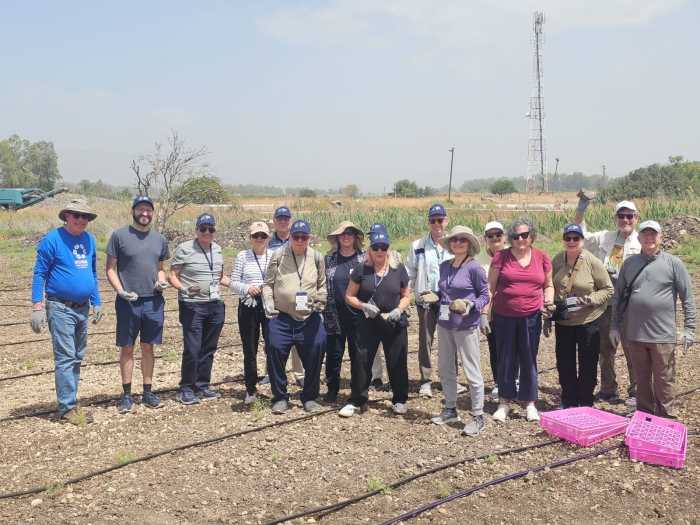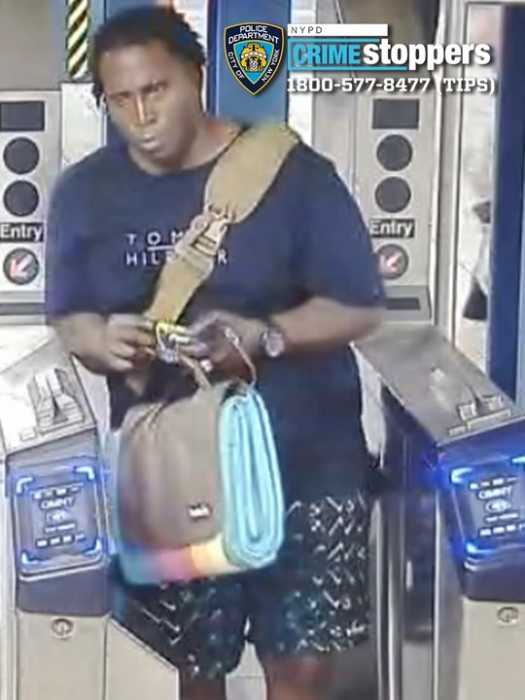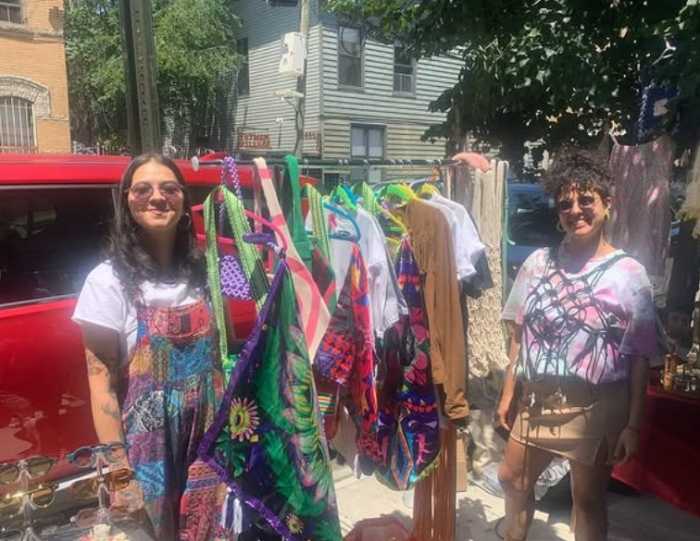By Stephen Witt
In the first of a series of interviews with the Democratic mayoral candidates, City Council Speaker Gifford Miller sat down with Courier-Life Publications at the El Greco Restaurant on Emmons Avenue in Sheepshead Bay. In person, Miller’s manner is casual, yet calculated. Like many of the candidates, he has an advance person and is on a fairly tight schedule with business, civic and educational stops in several neighborhoods throughout the day. Miller is married with two young children and currently lives on and represents Manhattan’s Upper East Side. What do you love about your current job and running for mayor? I love that I get a chance to see all of New York with all of its diversity and its breadth. I can spend a morning with Dominicans in Washington Heights, lunch with a growing business district in Flushing and the evening visiting the Russian community in Coney Island. That’s what New York is all about and I get to see it and experience and hopefully contribute something to it. The way you win a race like this is you can’t be a candidate from one community, one borough, and one point of view. You have to be a little bit diverse to have a coalition to support you and that’s what I do every day as Speaker. I bring together the most diverse legislature in the country and accomplish things that people say could never be done — and I think that’s what you’re supposed to do as a mayoral candidate and ultimately as a mayor. There is sometimes a perception that Mayor Bloomberg’s focus on economic activity is twofold – Wall Street and tourism. Can you comment on that and lay out your vision of economic activity? It’s important from a perceptual point of view for the people of this city to think that the mayor of this city understands them [and] cares about them…I don’t think we have that in this mayor and I think there’s some reality to this criticism. Whether you like or don’t like the [proposed Jets] football stadium on the West Side, the limited vision on where economic opportunities are occurring is the problem. To me, the jobs are being created in Brooklyn and Queens. We ought to have a tax policy that supports that with tax cuts for small businesses, particularly in the outer boroughs and I propose to do that. We also have to recognize the best way to create long-term economic development is invest in our workforce, and have the most talented and creative people living here and working here, and that means having a strong education system and also making it an affordable place to live. You just can’t think about issues of livability solely as quality-of-life issues. They are also economic development issues, because businesses want to be where there are smart and talented people and if you make this too difficult a place to live, then our workforce won’t stay. You haven’t yet given a definitive view on the proposed Atlantic Yards project that includes an arena for the New Jersey Nets to move to Brooklyn, mixed-income housing and commercial space. What’s your current view on the project? I look at it in the same light that I look at the West Side rail yards. There are a number of problems I had in the West Side rail yards. It’s a terrible idea to spend money directly on building a football stadium. I think that the planning for it was bad. How we’re going to build an 80,000-seat stadium without building one parking space doesn’t make any sense to me, Ultimately, the real problem is the mayor created a process where there was no competitiveness about the project. In the end, the MTA put out a bid for 13 acres of the most valuable real estate in the world and the only two people who bid on it were… But let’s go to Brooklyn and the Atlantic Yards. So I’m going to get there. So what I was saying is because there was no competitive process we ended up with a terrible deal for the city. In the Atlantic Yards project there are certainly some elements that are much better than the West Side rail yards. Affordable housing is very important. We need affordable housing. I think it would be great to find a way to bring a professional basketball team to Brooklyn, but I can’t support it at this time and I can’t say if this is the best thing because we need a competitive process to determine whether or not this is the best job. I don’t look for ways to say no to things. I didn’t look for ways to say no to the West Side rail yards. I’m somebody who likes to see activity and development, but as it’s currently proposed there hasn’t been a way to have a real competitive process to say is this the best thing for the Atlantic Yards. So what I’m saying is to work toward that sort of competitiveness, so Bruce Ratner and those who think another way is better can come forward with their ideas, and anybody else who thinks they can do anything on this site, which has not been developed for decades, have their chance to let the best bid win and then we should move forward. Mayor Bloomberg recently received the endorsement of the construction trade union, but is still negotiating police and teacher contracts. At the same time, our police reporter says the 88th Precinct was built in the late 19th century and cops from the 63rd Precinct in Flatlands have been clamoring for a new precinct house for decades. Do you think the mayor is shortchanging the working class? Your cop reporter is onto something. There are two issues that we need to deal with when we deal with our municipal workforce. The thing we’re trying to do is retrain and attract the best people — whether they are cops or teachers, the goal is the same thing. Having top-quality cops and schoolteachers is critical to the future of this city. Some of it’s about pay. We don’t pay as competitively as we should and this is a mayor who when he could avoid paying anybody anything he does. Look what happened with the day-care workers. They went five years without a contract just because the mayor decided not to negotiate with them and it took five years to finally bring him to the table and that’s wrong. But it’s not only about pay. We can’t afford to pay everybody what we’d like to. Some of it is about the working conditions people are put under and the decrepit conditions of our precincts is a great example of the sort of long-term problem we have of retaining outstanding police officers. Precinct houses, not just the 88 and 63, all over the city are falling apart; bathrooms that don’t work, lighting that doesn’t work, no computers, telephone systems that are ancient. First of all, this makes the workforce less productive, but it also sends a powerful and corrosive message that we don’t really value their work and won’t give them the tool they need to succeed. That’s true in the schools as well. When you tell teachers and students to learn in a school where the windows are so old that snow piles up on the classroom floors as it does on some floors in the city every time it snows, you’re sending a powerful and corrosive message. Recently you toured senior centers in the borough. What did you find and what do you think of the current administration’s policy toward senior centers and care? I think it would be a good thing if this mayor spent a little more time in senior centers. If he did, he wouldn’t be proposing to close them as he has in the past or cut their funding as he is right now. When you’ve gone to senior centers as I have all over the city, and everywhere you go are seniors who eat half the meal and bring the same paper bag every day, and take the other half home in that paper bag because it’s the only nutritional meal they’re going to get all day long, when you’ve seen that and felt its impact on their everyday lives, you wouldn’t propose to cut these programs the way the mayor has. Even in tough times, there’s something fundamental about who we are as a city in the statement we make in our values by supporting seniors healthy and independent and living in their own homes. In the end, it’s actually a good financial investment, because the alternative is so much more expensive than helping people stay healthy and independently living in their own homes. What specifically can the mayor be doing better for seniors? Well, for one thing, he’s pursuing trying to replace Meals on Wheels with frozen meals, which is a terrible idea. That’s a bad thing, but more proactively, we should be looking to expand the support for an aging population through senior centers because it’s financially responsible when you have programs like adult day care for those who really need a lot of help and a meals program for those who need comparatively less, and combine them with exercise and fitness programs and things like that, you end up keeping people healthy and independently living in their home. This saves the city money, but also meets a responsibility of a society toward those who built this city. Several cities have ports that house both the cruise ship industry and a stevedoring operation. Yet the present administration seems bent on moving the last stevedoring operation in Brooklyn out of the borough in favor of the cruise industry and other to-be-determined maritime operations. What’s your view on this? I think they have been a little hasty there at trying to shut down the jobs that are working there right now. They can certainly extend the jobs there right now and not try to shut down the jobs before the cruise ships are even close to being ready to come here. I think you’re absolutely right, other places have found a way to do things together. There are hundreds of jobs at stake here, and potentially thousands of jobs. They are good manufacturing, well-paying jobs with health insurance that give people an opportunity to build a better life for themselves and their families. We shouldn’t be so cavalier in dismissing them. If you were to become mayor, would you consider re-staffing the Rossville Fire Department? I wouldn’t reconsider. I would do it. It doesn’t make any sense to me why the City of New York spent $11.5 million to build that fire station and not put any people in it. Staten Island is the fastest-growing borough and you have to recognize population changes when you do this kind of thing. The only reason I think they are doing this is politics, and politics should play no role in public safety. What about the fire stations in Brooklyn that the mayor closed? Yes, I would re-open the fire stations in Brooklyn. It would be one thing if the mayor said, ‘look the way the firehouses are organized now we can do it better. We can lower the response time by opening some here and closing some there to respond to population shifts. I could consider that more a kind of global response, but just saying I’m going to close fire stations because we don’t have enough money is not true. We have enough money and those stations should be reopened. Finally, like the mayor, you’re from the Upper East Side of Manhattan. How would you distinguish yourself as a mayoral candidate from the mayor and the perception of being from one of the wealthier council districts? Mike Bloomberg and I are very different people. We have different leadership styles. We have different personal experiences and we have different approaches to issues. I think my job is to go out and convince people that I understand their struggles and that I’m going to be a mayor that’s going to wake up every morning with just one thing on my mind. Making people’s lives better.



































